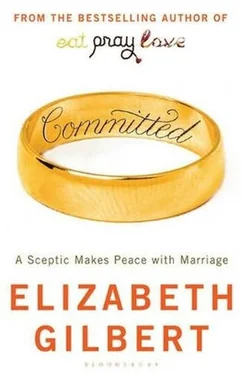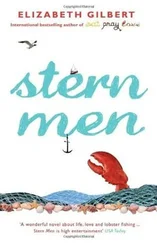To further enforce controls over wealth management and stabilization, courts all across Europe were now seriously upholding the legal notion of coverture-that is, the belief that a woman’s individual civil existence is erased the moment she marries. Under this system, a wife effectively becomes “covered” by her husband and no longer has any legal rights of her own, nor can she hold any personal property. Coverture was initially a French legal notion, but it spread handily across Europe and soon became entrenched deep in English Common Law. Even as late as the nineteenth century, the British judge Lord William Blackstone was still defending the essence of coverture in his courtroom, insisting that a married woman did not really exist as a legal entity. “The very being of the woman,” Blackstone wrote, “is suspended during marriage.” For that reason, Blackstone ruled, a husband cannot share assets with his wife even if he wanted to-not even if those assets were once technically the woman’s property. A man cannot grant anything to his wife, for doing so would presuppose “her separate existence” from him-and such a thing was clearly impossible.
Coverture, then, was not so much a blending of two individuals as a spooky and almost voodoo-like “twicing” of the man, wherein his powers doubled and his wife’s evaporated completely. Combined with the strict new antidivorce policies of the church, marriage became, by the thirteenth century, an institution that entombed and then erased its female victims-particularly among the gentry. One can only imagine how lonely the lives of those women must have become once they were so thoroughly eradicated as humans. How on earth did they fill their days? Over the course of their paralyzing marriages, as Balzac wrote of such unfortunate ladies, “Boredom overtakes them, and they give themselves up to religion, or cats, or little dogs, or other manias which are offensive only to God.”
If there is one word, by the way, that triggers all the inherent terrors I have ever felt about the institution of marriage, it is coverture. This is exactly what the dancer Isadora Duncan was talking about when she wrote that “any intelligent woman who reads the marriage contract and then goes into it deserves all the consequences.”
My aversion is not entirely irrational either. The legacy of coverture lingered in Western civilization for many more centuries than it ought to have, clinging to life in the margins of dusty old law books, and always linked to conservative assumptions about the proper role of a wife. It wasn’t until the year 1975, for instance, that the married women of Connecticut-including my own mother-were legally allowed to take out loans or open checking accounts without the written permission of their husbands. It wasn’t until 1984 that the state of New York overturned an ugly legal notion called “the marital rape exemption,” which had previously permitted a man to do anything he liked sexually to his wife, no matter how violent or coercive, since her body belonged to him-since, in effect, she was him.
There’s one particular example of coverture’s legacy which-given my circumstances-touches me most of all. The fact is, I was lucky that the United States government was even considering allowing me to marry Felipe without forcing me to renounce my own nationality in the process. In 1907, a law was passed by the United States Congress stating that any natural-born American woman who married a foreign-born man would have to surrender her American citizenship upon her marriage and automatically become a citizen of her husband’s nation-whether she wanted to or not. Though the courts conceded that this was unpleasant, they maintained for many years that it was necessary. As the Supreme Court ruled on the matter, if you were to permit an American woman to keep her own nationality at the moment of marriage to a foreigner, you would essentially be allowing the wife’s citizenship to trump the husband’s citizenship. In so doing, you would be suggesting that the woman was in possession of something that rendered her superior to her husband-in even one small regard-and this was obviously unconscionable, as one American judge explained, since it undermined “the ancient principle” of the marital contract, which existed in order “to merge their identity (man and wife) and give dominance to the husband.” (Strictly speaking, of course, that’s not a merger; that’s a takeover. But you get the point.)
Needless to say, the law did not hold the reverse to be true. If a natural-born American man married a foreign-born woman, the husband was certainly allowed to keep his citizenship, and his bride (covered by him, after all) would certainly be allowed to become an American citizen herself-that is, so long as she met the official naturalization requirements for foreign-born wives (which is to say, so long as she was not a Negro, a mulatto, a member of “the Malay race,” or any other kind of creature that the United States of America expressly deemed undesirable).
This brings us to another subject I find disturbing about matrimony’s legacy: the racism that one encounters all over marriage law-even in very recent American history. One of the more sinister characters in the American matrimonial saga was a fellow named Paul Popenoe, an avocado farmer from California who opened a eugenics clinic in Los Angeles in the 1930s called “The Human Betterment Foundation.” Inspired by his attempts to cultivate better avocados, he devoted his clinic to the work of cultivating better (read: whiter) Americans. Popenoe was concerned that white women-who had lately started attending college and delaying marriage-weren’t breeding quickly or copiously enough, while all the wrong-colored people were breeding in dangerous numbers. He also nursed deep concerns about marriage and breeding among the “unfit,” and so his clinic’s first priority was to sterilize all those whom Popenoe judged unworthy to reproduce. If any of this sounds distressingly familiar, it’s only because the Nazis were impressed by Popenoe’s work, which they quoted often in their own writings. Indeed, the Nazis really ran with his ideas. While Germany eventually sterilized over 400,000 people, American states-following Popenoe’s programs-managed to get only about 60,000 citizens sterilized.
It’s also chilling to learn that Popenoe used his clinic as the base from which to launch the very first marriage-counseling center in America. The intention of this counseling center was to encourage marriage and breeding among “fit” couples (white, Protestant couples of northern European descent). More chilling still is the fact that Popenoe, the father of American eugenics, also went on to launch the famous Ladies’ Home Journal column “Can This Marriage Be Saved?” His intention with the advice column was identical to that of the counseling center: to keep all those white American couples together so they could produce more white American babies.
But racial discrimination has always shaped marriage in America. Slaves in the antebellum South, not surprisingly, were never allowed to marry. The argument against slaves’ marrying, simply put, was this: It’s impossible. Marriage in Western society is supposed to be a contract based on mutual consent, and a slave-by very definition-does not possess his own consent. His every move is controlled by his master and therefore he cannot willfully enter into any contract with another human being. To allow a slave to enter into a consensual marriage, then, would be to assume that a slave can make even one small promise of his own, and this is obviously impossible. Therefore, slaves could not marry. A tidy line of reasoning, this argument (and the brutal policies that enforced it) effectively destroyed the institution of marriage within the African American community for generations to come-a disgraceful legacy that haunts society to this day.
Читать дальше












